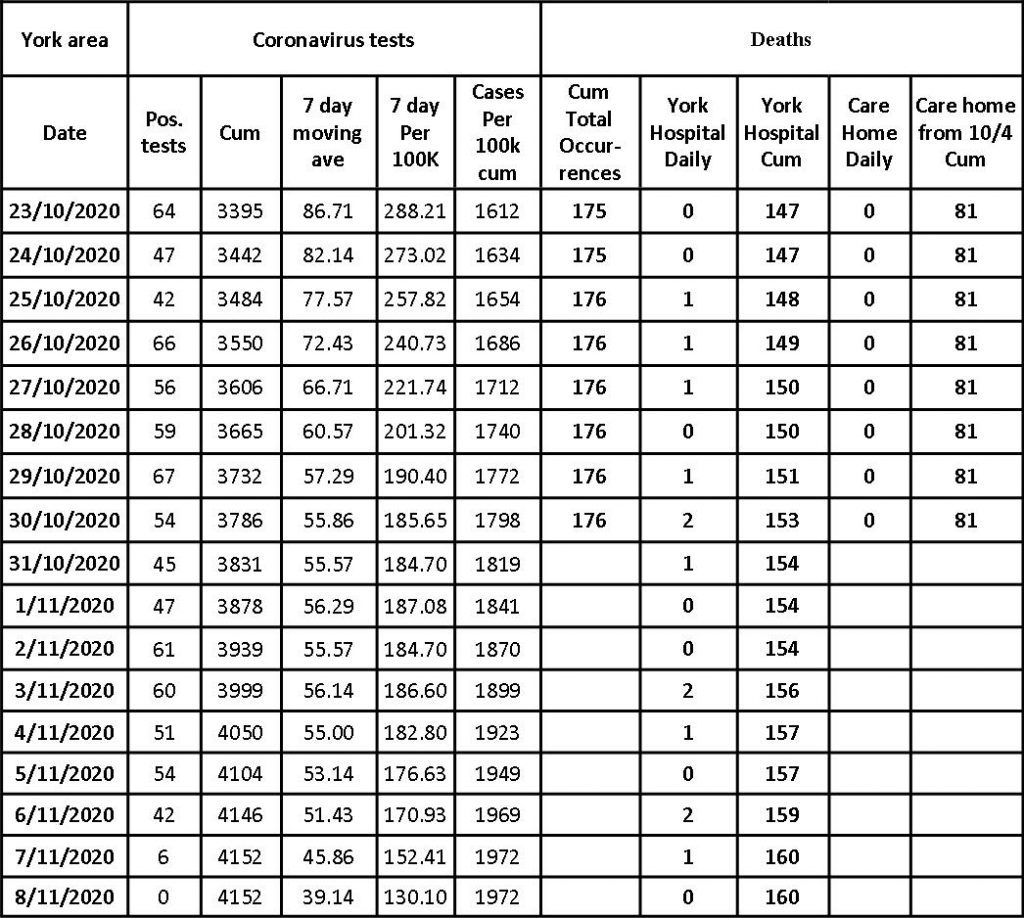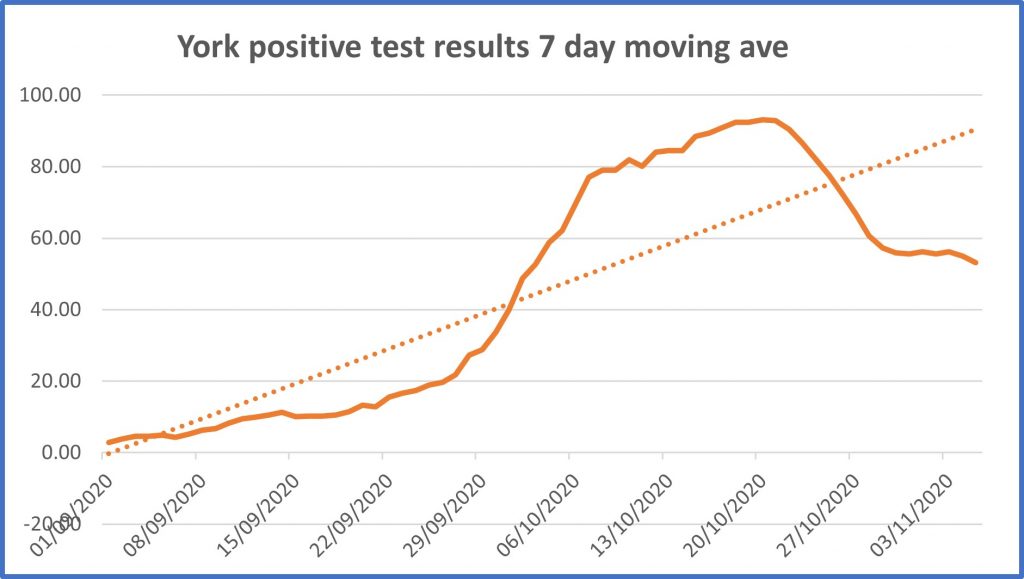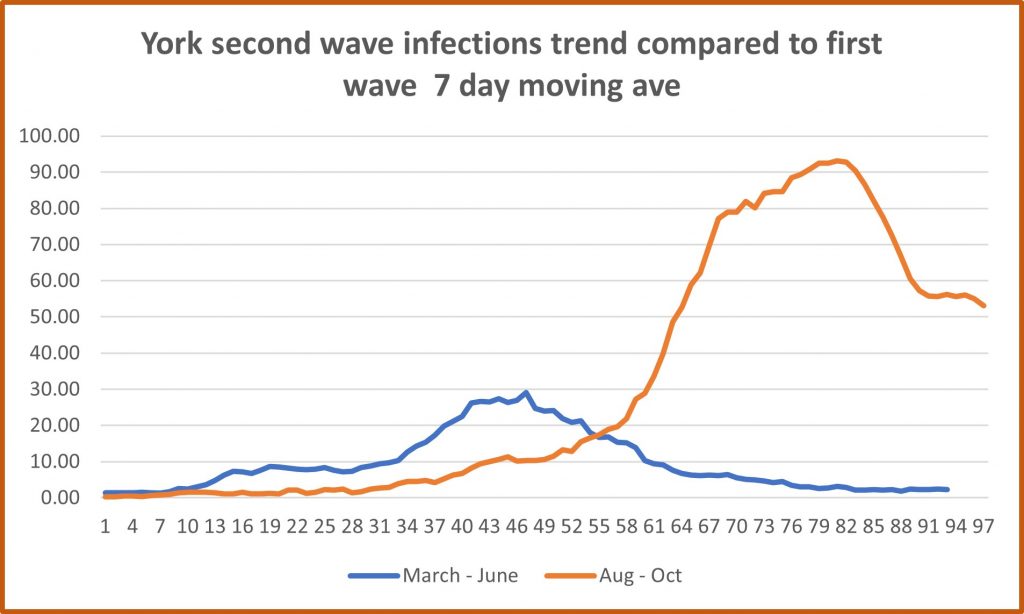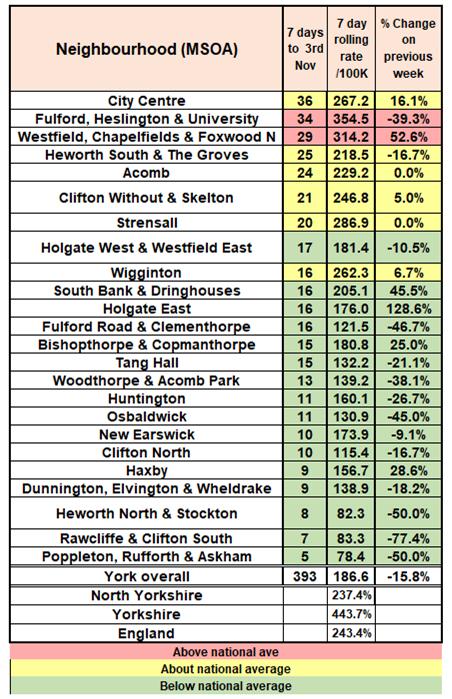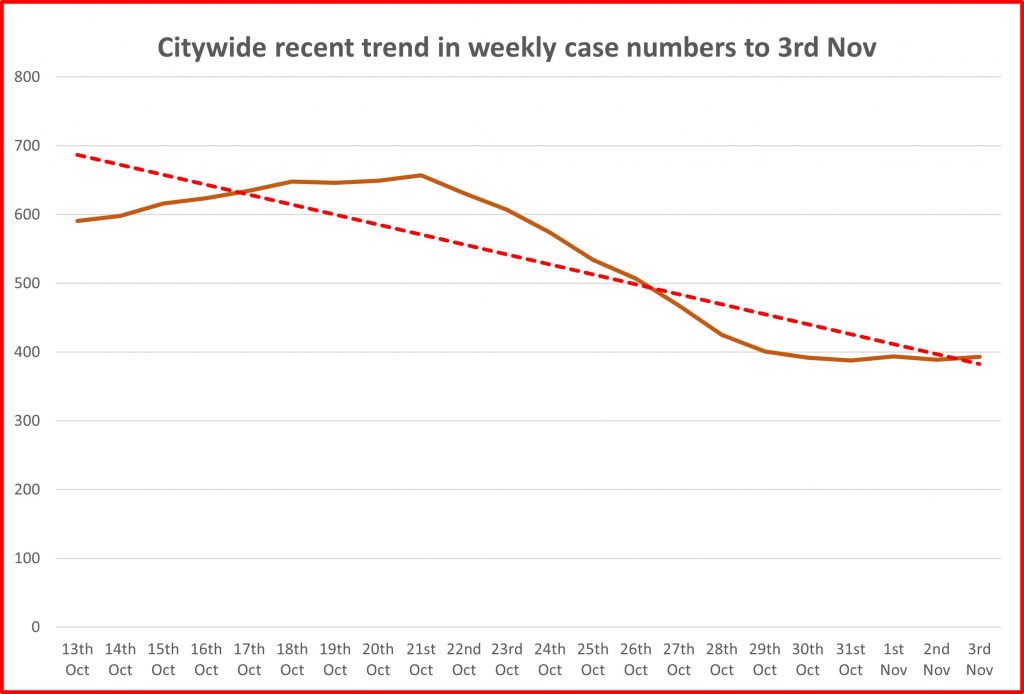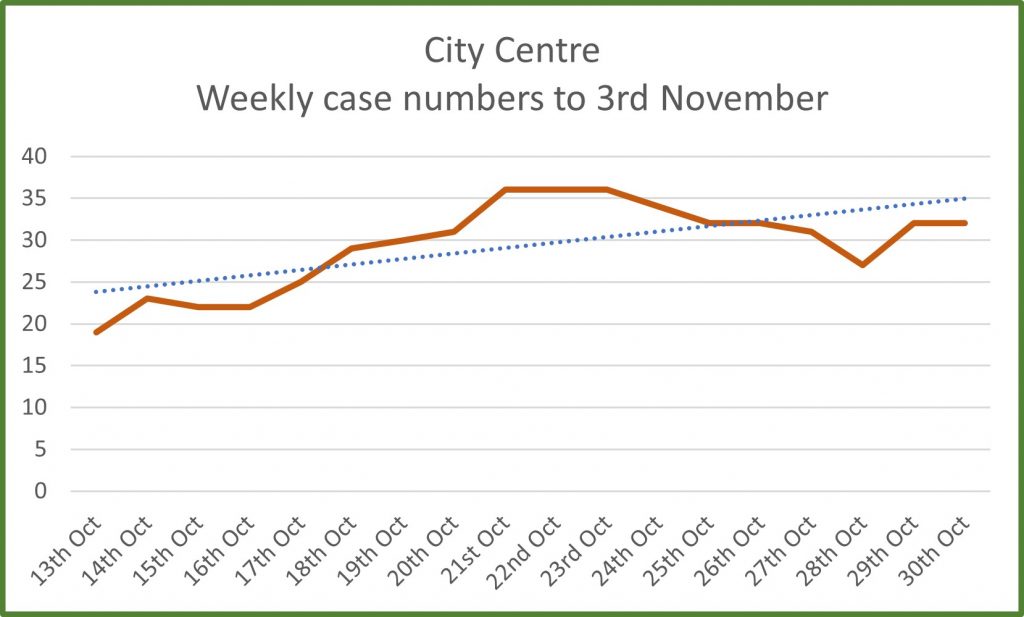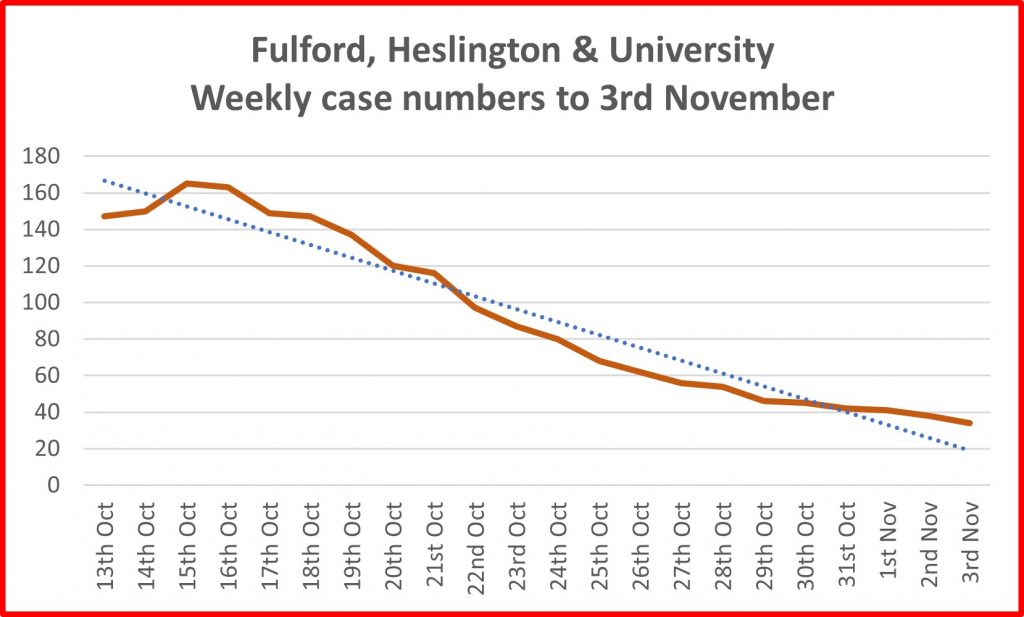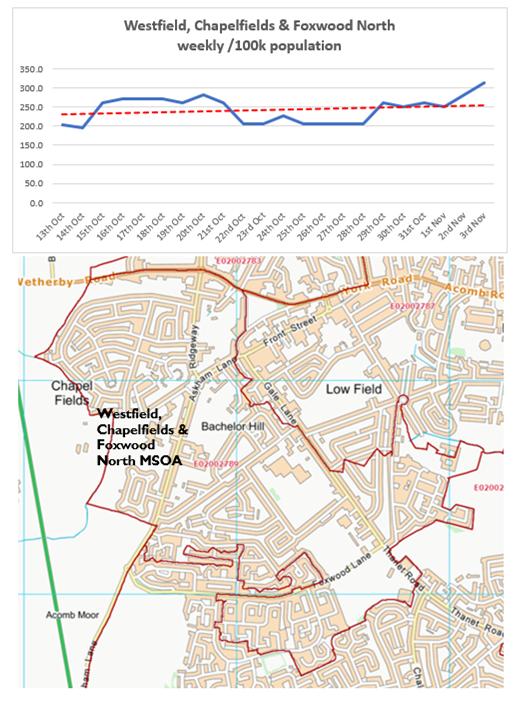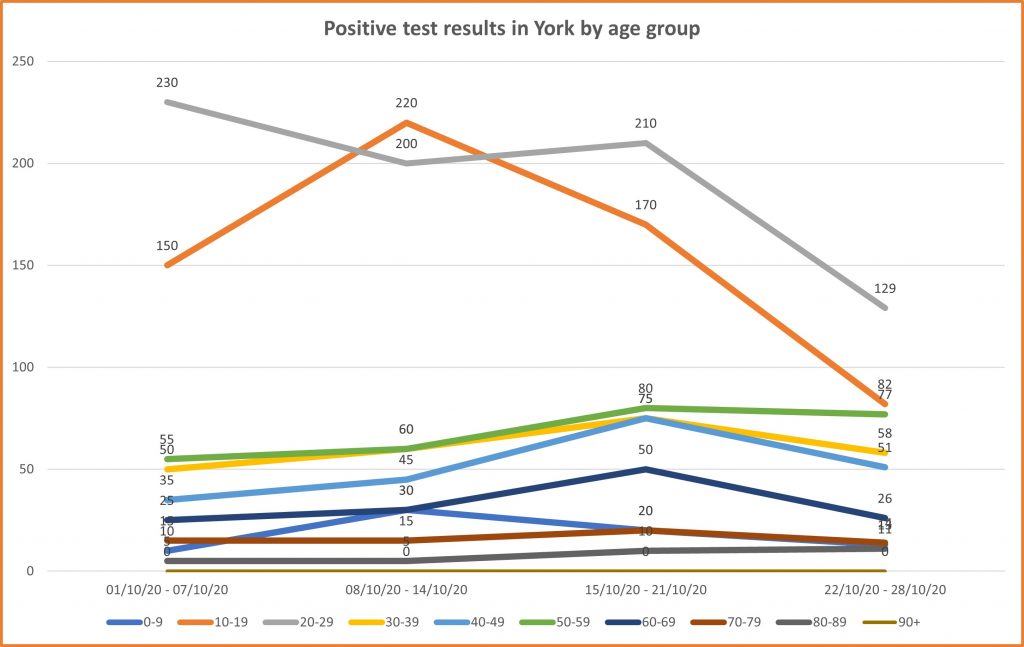Deaths and case numbers
EIGHT (8) additional deaths have been recorded at the York Hospital Trust. 2 occurred yesterday, 5 on Saturday and one on Friday.
This is the largest single day announcement of fatalities made during the whole of the second wave.
It brings the cumulative total at the York and Scarborough hospitals to 89.
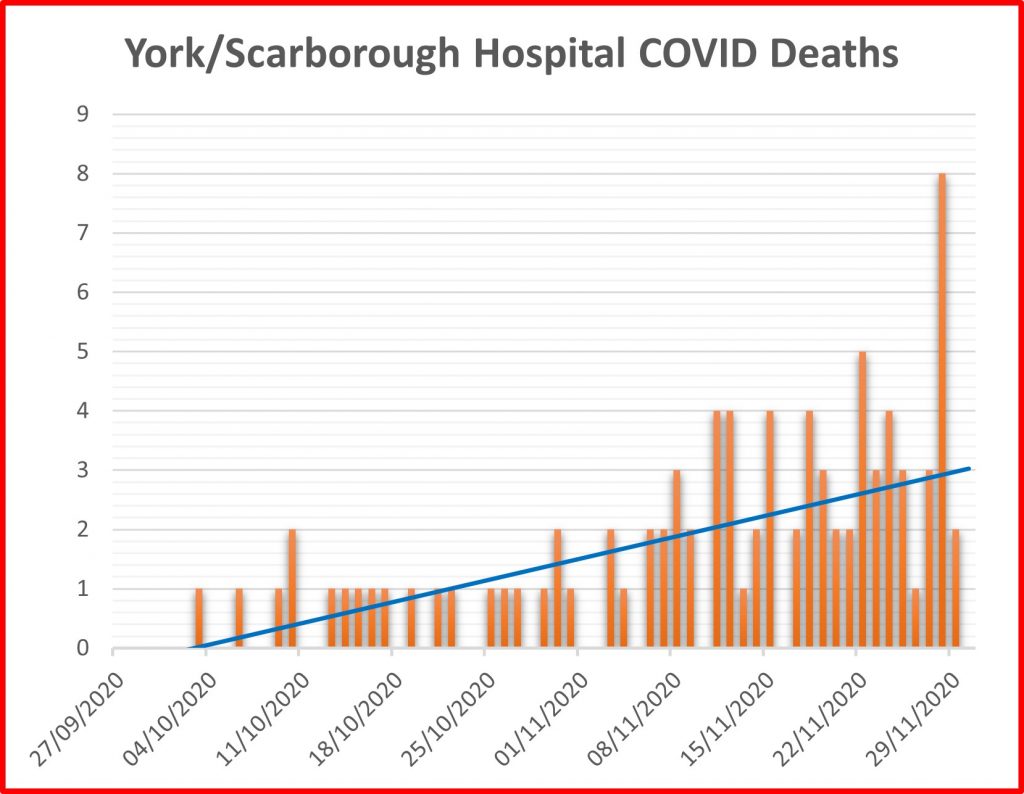
Clearly this is very disappointing news.
However, during Wave 1, hospital admissions, and subsequent deaths, followed some two to three weeks behind a change in infection rate levels.
So, if a similar pattern is followed, a downturn in hospital admissions might be hoped for in a week or so’s time.
A further TWENTY (20) positive test results have been announced today. That brings the cumulative total for the City to 5632
The case rate per 100k population figure has now fallen to 100.2 and is therefore on the cusp of the band which might allow the City to move into Tier 1 restrictions, when the next review takes place in 2 weeks time.
100.2 is the lowest infection rate recorded in the City since 29th September but it is also still above the peak recorded during wave 1 (96.9 on 5th May 2020)
By way of comparison, the latest figure for Cornwall, which was one of only 2 areas allocated to Tier one from Wednesday, has a current infection rate of 40.2.
There are, of course, other factors – not least the position at the local hospital – which would also influence a decision to change Tiers.
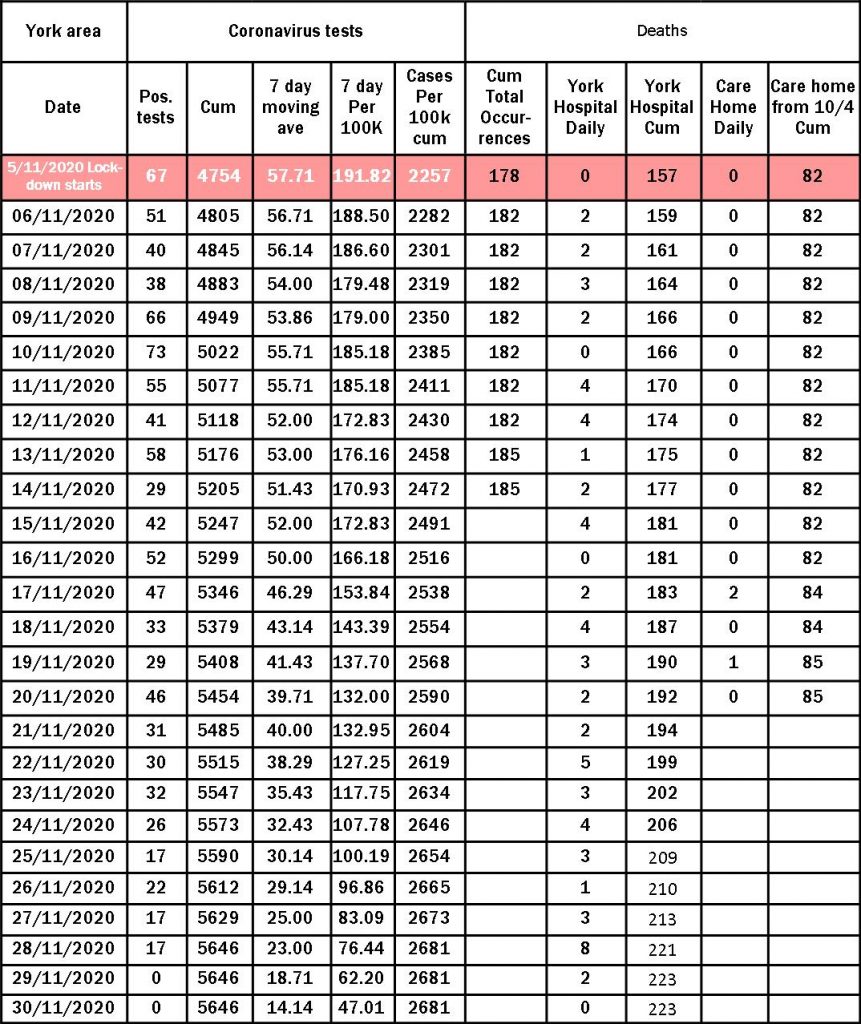
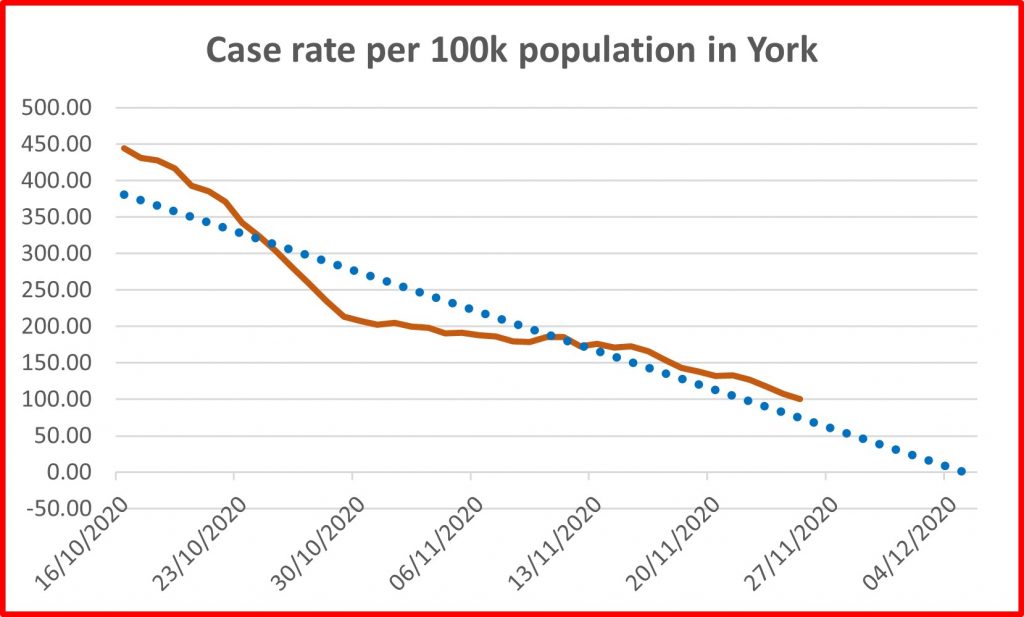
For the first time for two months, one York neighbourhood has recorded zero cases (understood to be New Earswick or Bishopthorpe)
The highest local infection rate can now be found in the Westfield/Chapelfields neighbourhood.
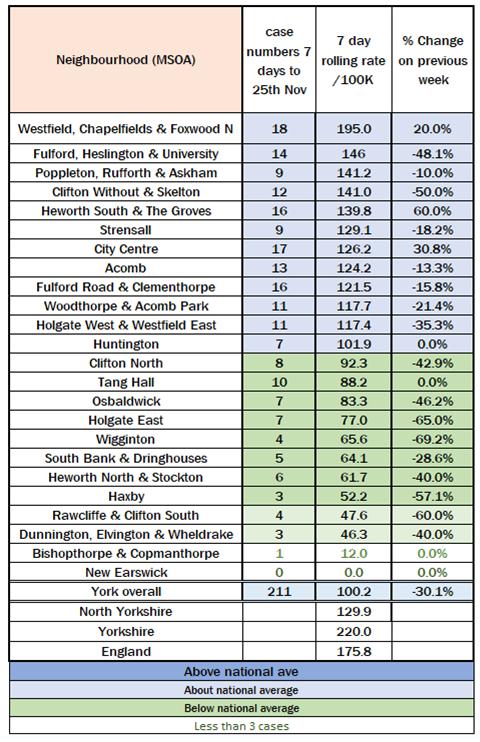
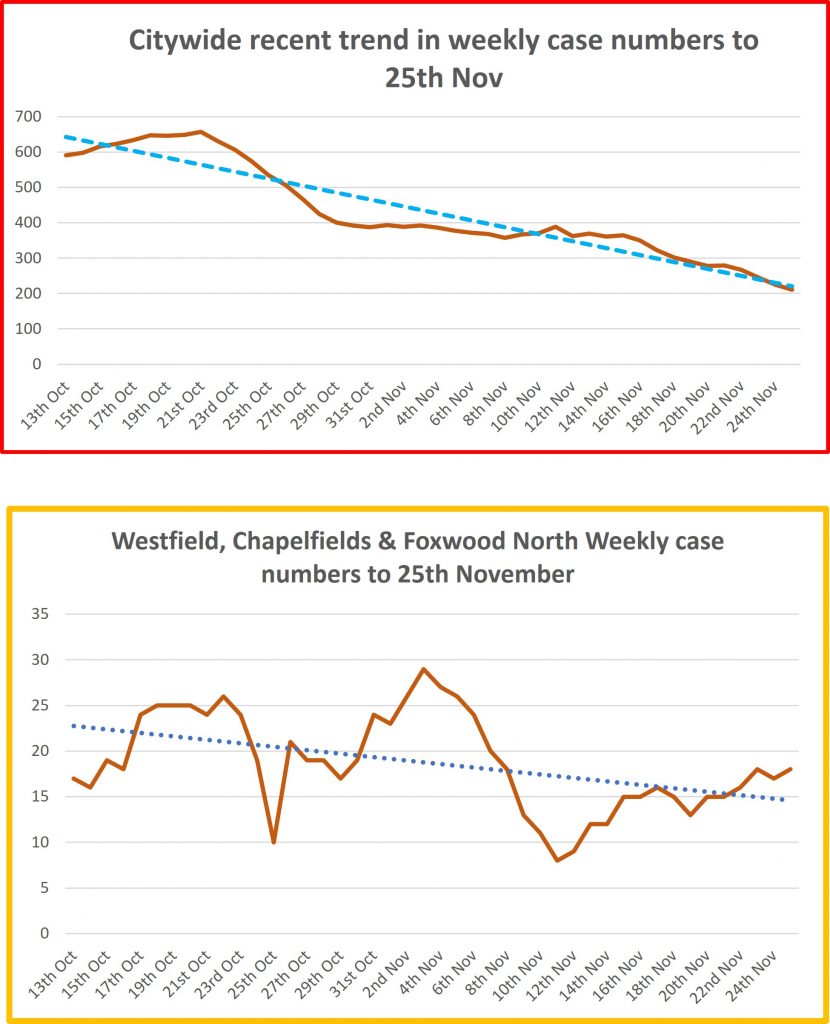
Vitamin D
The government is now – belatedly – issuing the following advice on Vitamin D supplements. The York Council has been urged previously to make these supplements available at least to vulnerable groups. They could be distributed via many channels not least food banks.
Vitamin D supplements – government statement
“During the autumn and winter months everyone is advised to take a supplement of vitamin D every day to support general health and in particular for bone and muscle health. Many of us have been indoors more than usual this year and so might not have been making enough vitamin D from sunlight. You can find general advice on vitamin D here: https://www.nhs.uk/vitamin-d
This advice is particularly important for people who have been shielding this year due to COVID-19, or who are living in care homes, because they are most likely to have been indoors over the spring and summer and so may not have been able to obtain enough vitamin D from sunlight.
The Government is offering a free 4-month supply of daily supplements of vitamin D for all adults who are clinically extremely vulnerable to support general health and in particular for bone and muscle health. If you would like to opt-in to receive your free supply of vitamin D, you will need register your details between 30 November 2020 and 4 January 2021 at the following link: https://www.nhs.uk/get-vitamin-d
You do not need to opt-in to receive the vitamin D supplements if:
| You are already taking, or are prescribed, a vitamin D supplement by your GP or healthcare professional You are currently living in a nursing or residential care home as we will provide these direct to the home where you live. |
We expect to start distributing the vitamin D supplements from January 2021. Further guidance on how to safely take vitamin D supplements will be provided during the opt in process.
I know it has been really hard for you during the pandemic and appreciate the sacrifices that you have made. We will continue to support you in your efforts to keep yourself and others safe”.

